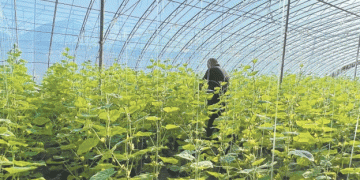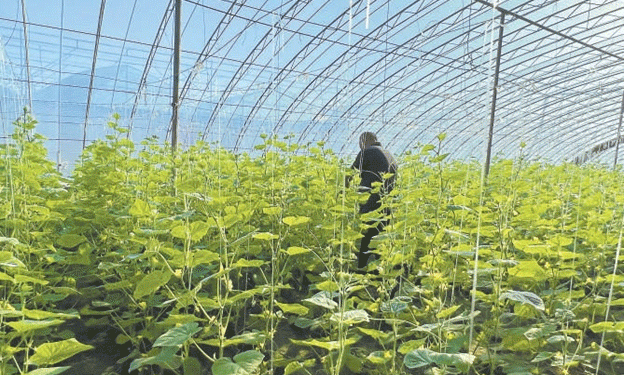Revolutionizing Vegetable Supply: The Hebei Clean Vegetable Initiative in Beijing
The integration of agricultural resources between Beijing and Hebei is reshaping the vegetable supply landscape, ensuring that urban consumers have access to fresh, high-quality produce. As part of the national effort to connect agricultural production with urban consumption, the “Hebei Clean Vegetable” initiative has successfully established 158 vegetable production bases surrounding Beijing. These developments are pivotal not only for local farmers but also for enhancing food security in urban markets.
The Rise of “Hebei Clean Vegetables”
On September 23, during a nationwide agricultural event aimed at fostering rural revitalization, it was reported that the Hebei clean vegetable supply to the Beijing market now exceeds 20,000 jin (approximately 10,000 kg) daily. This substantial supply comes from a network of cold chain logistics and shared storage facilities, significantly increasing the efficiency of vegetable distribution.
According to Xing Yongzhi, chairman of Hebei Nongsuyuan Cold Chain Logistics Co., the company has invested in the first “Hebei Clean Vegetable” shared storage and distribution center in Xinfadi, Beijing. This facility spans 5,000 square meters of regular storage space, 1,000 square meters of cold storage, and another 1,000 square meters dedicated to showcasing clean vegetable brands. Since its operation began in January 2024, the center has become a key node in the logistics chain, facilitating direct vegetable shipments from Hebei to urban consumers.
Quality Control and Production Standards
Quality assurance is a cornerstone of the “Hebei Clean Vegetable” initiative. In Cangzhou’s Qing County, where modern agricultural practices are being implemented, vegetables are meticulously sorted during harvest. Liu Yinli, the head of a modern agricultural park, notes that the highest-quality produce is prioritized for clean vegetable processing companies. This commitment to quality not only enhances the value of the vegetables but also aligns with the growing demand for clean, fresh produce among consumers.
Furthermore, the initiative’s emphasis on reducing kitchen waste is noteworthy. Clean vegetables, which are pre-prepared and ready for cooking, help streamline food preparation in restaurants and schools, contributing to reduced waste and lower operational costs. Xing mentioned that over 76% of their clients, including various institutions, benefit from a 5% to 10% reduction in costs due to the efficient supply chain established by this initiative.
Collaboration and Future Prospects
As part of the continued collaboration between Beijing, Tianjin, and Hebei, a cooperative agreement was signed in October 2023, outlining the framework for emergency supply coordination and production-sales collaboration. This partnership underscores the importance of integrated market strategies in enhancing the agricultural economy and ensuring consistent vegetable supply.
The Hebei province has also registered the first provincial public brand for clean vegetables, “Hebei Clean Vegetables,” and established a dedicated company to expand its market reach. These efforts are complemented by agreements with major stakeholders, including the Beijing School Base Supply Platform and JD.com, fostering a robust connection between producers and consumers.
The “Hebei Clean Vegetable” initiative is not only a response to urban demand for fresh produce but also a significant step toward sustainable agricultural practices and rural revitalization. By focusing on quality, efficient logistics, and strategic partnerships, this initiative is poised to enhance the agricultural landscape in the Beijing-Hebei region, benefiting farmers and consumers alike. As the project continues to evolve, it may serve as a model for other regions seeking to improve their agricultural supply chains and support local economies.































